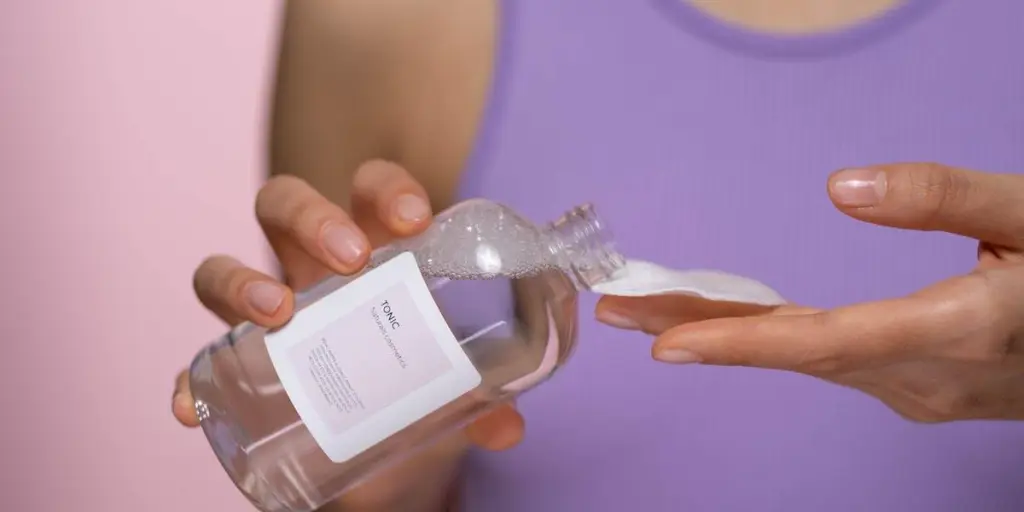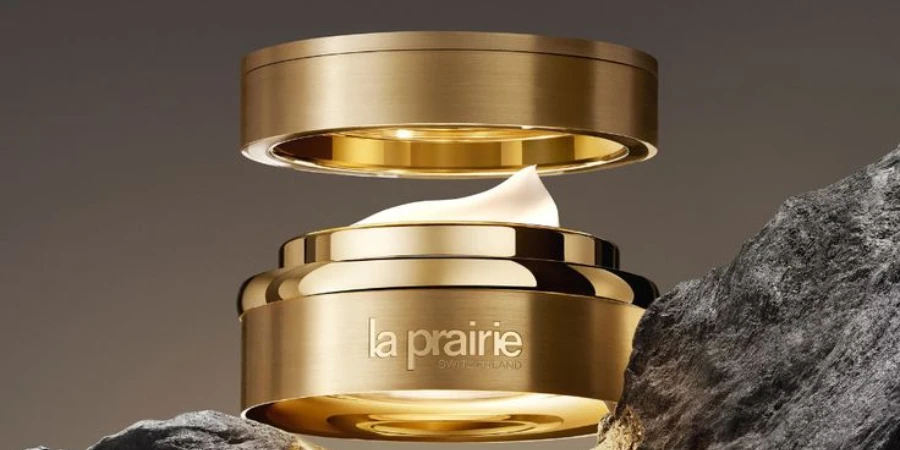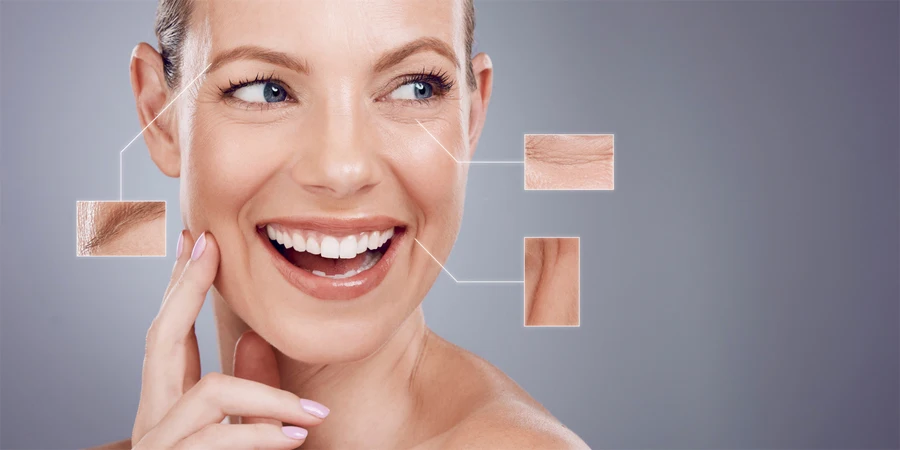Skin toners were notorious for containing high alcohol levels, giving them a bad reputation. Most consumers hated them because they sucked out all the moisture from the skin, leaving nothing but parched surfaces behind.
But that’s a case of the past. Skin toners today come with gentler formulas that increase the benefits while limiting the downsides. This means that they have become go-to products for nourishing the skin while delivering a burst of hydration. Some even target specific skin concerns, adding to their appeal.
With skin toners having a better reputation in modern beauty, their profitability has equally skyrocketed. Keep reading to learn how to choose toners that your buyers will love in 2024.
Table of Contents
A brief look at the skin toner market
What do toners do in a beauty routine?
Major things to consider when choosing toners
Bottom line
A brief look at the skin toner market
Experts predict the skin toner market will experience a 5.3% compound annual growth rate (CAGR), resulting in a boost from USD 1.3 billion in 2023 to USD 2.0 billion by 2030. They also attribute the market’s growth to millennials’ rising awareness of skin care products.
Other growth drivers include the growing spending power of the middle class in developing nations and manufacturers packaging toners with other products. Here are other stats to note:
- The growing trend of personalized skincare routines creates opportunities for retailers to offer customizable skin toners.
- Women remain the leading category in the skin toner market. But, experts predict the men’s segment will grow significantly over the forecast period.
- Experts say North America will remain dominant throughout the forecast period, with the U.S. being the most significant contributor.
What do toners do in a beauty routine?
Forget the skin-damaging toners of the past! Modern skin toners do a lot for the skin, from exfoliating to moisturizing and cleansing. Here’s the lowdown on what beauty enthusiasts can do with toners:
Deep cleansing
While many people understand the benefits of double cleansing, what they may not know is that toners are great as secondary cleansers.
These products can attack any leftover makeup, dirt, or impurities the regular cleanser missed. And they can remove all that excess oil and grime consumers build up during the day or at night.
Create balanced complexions
Toners can do more than just provide extra cleanse. They can also help restore discolored skin with the nutrients traditional cleansers may remove.
For this reason, using toners often results in softer and smoother skin. Some toners can even handle those stubborn issues like redness.
Balance pH levels
Although the skin is naturally acidic (around 4.7 pH level), some cleansers and soaps can dramatically drop that number due to their alkaline nature.
Usually, such situations lead to excessive oiliness, dryness, and irritation because dropping the pH level disrupts some natural functions.
Regardless, the skin’s pH level can recover in hours, but toners can help balance it quicker than waiting for natural recovery.
Major things to consider when choosing toners
Choosing toners for dry skin
Dry-skinned consumers often complain of small pores, tight skin, and dull, rough complexions. Hence, they’re always searching for products that won’t lead to terrible skin situations, like cracking, peeling, patches, irritation, redness, and itchiness.
For this reason, consumers with dry skin will prefer toners containing humectants to help hydrate the skin and retain moisture like a magnet. Sellers must avoid toners with harsh ingredients that could increase dryness.
Here’s a list of toner ingredients to prioritize for dry-skinned women:
- Hyaluronic acid
- Vitamin E
- Glycerin
- Peptides
- Rose hips seed oil or jojoba oil
- Glycolic acid
- Dimethicone
Avoid the following ingredients:
- Alcohol (denatured, SD 40, isopropyl, and ethanol)
- Mineral oil
- Sodium or ammonium lauryl sulfate
- Petrolatum
Choosing toners for oily skin
Oily skin is on the opposite end of the spectrum. These consumers constantly deal with enlarged pores and excess oil, causing an annoying shine. Even when they blot the excess oil with a tissue, it leaves a significant oil residue behind.
The good news is all toners can help handle excess sebum. However, oily-skinned consumers will get a better experience from mattifying toners containing salicylic and glycolic acid—popular ingredients for exfoliation.
While most of these consumers are tempted to go for harsher products, they shouldn’t punish their oily skin with toners saturated with alcohol. Instead, they’ll be better off with toners offering refreshing and gentle formulas.
Here are the additional ingredients to look out for:
- Niacinamide (for reducing pore appearance)
- AHAs (Alpha Hydroxy Acids)
- Oil-free ingredients
- Sodium PCA
- Sodium hyaluronate
Here are the ones to avoid:
- Alcohol (denatures, isopropyl, SD 40, or ethanol)
- Petrolatum
- Sodium or ammonium lauryl sulfate
- Mineral oil
Note: These ingredients to be avoided can excessively dry oily skin, causing it to produce more oil to compensate.
Choosing toners for sensitive skin
Sensitive-skinned consumers receive the short end of the stick. Anything can irritate them easily, from beauty products to touches, hot water, and alcohol consumption. For this reason, these consumers are very picky with their toners.
They’ll pick nothing but mild toners containing 0% alcohol and acids (like salicylic acid) or parabens. Their primary goal is antioxidants and anti-inflammatory ingredients.
Focus on these ingredients for sensitive skin-compatible toners:
- Beta-glucans
- White tea extract
- Sea whip
- Glycerin
Avoid these ingredients:
- Synthetic dyes and fragrances
- Sodium or ammonium lauryl sulfate
- All forms of alcohol
Choosing toners for combination skin
Combination skin is the more complicated type. Such consumers can have oily and dry areas on their faces, making it tricky to pick the right toner. Usually, they have larger pores on their t-zone areas and smaller ones on the rest of their face.
These consumers often purchase two kinds of toners. They’ll use one during summer and the other for winter.
Summer-worthy toners must be refreshing enough with oil-free ingredients to control the skin’s oil production. On the other hand, winter tones must be hydrating and infused with moisturizing ingredients like rose hips or jojoba oil.
Alternatively, they can opt for toners offering the best of both worlds. Such formulas can handle excess oil production without removing all the natural moisture—keeping one hydrated and oil-free!
Choosing toners for sun damage and aging signs
Consumers hoping to combat sun damage need toners chuck-full with antioxidants. They’re key ingredients for tackling visible signs of aging, like fine lines and wrinkles.
For environmental damage, ingredients like vitamins C and E are a godsend. They can protect the skin and help correct any existing damage. The results are a more even skin appearance and texture.
Don’t sleep on hyaluronic acid for these consumers. It’s a critical ingredient for maintaining a hydrated look. Glycolic acid will also help exfoliate and encourage collagen production.
Bottom line
Toners are not what they used to be. Manufacturers now consider different skin types, adding various ingredients to their formulas to satisfy the varying requirements.
Demand for these products is also off the charts. Up to 550,000 potential buyers have searched for toners in January 2024, showing the market is ripe for businesses to make huge profits. Experts even say adding toners to skincare bundles is a great way to boost demand!
But to avoid making mistakes with toners and attracting complaints or bad reviews, sellers must follow the guidelines listed in this article. It’ll help them understand the best toners for each skin type.








